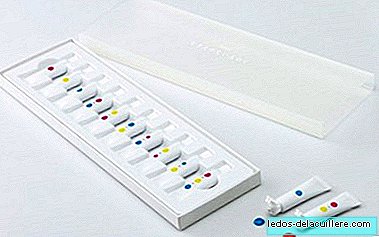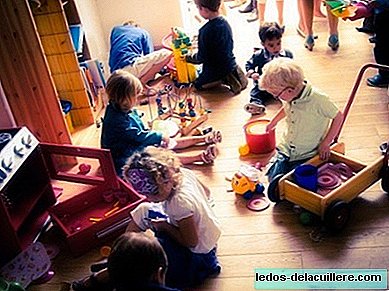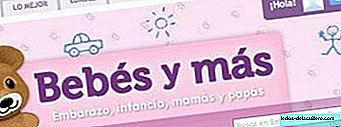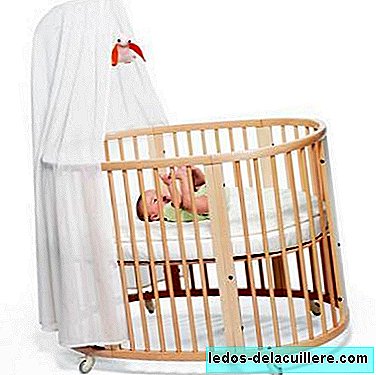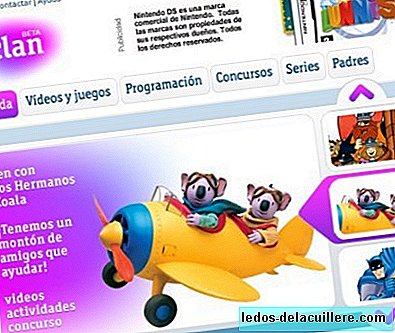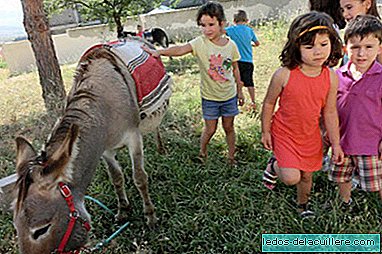Sudden infant death syndrome (SIDS) is the biggest fear of any parent. It is normal for concern to cause many to resort to any type of device that may help reduce their risk in some way.
There are "smart" clothes such as socks, rompers, buttons, bodies, etc. endowed with sensors that record the vital signs of babies while they sleep, but the pediatricians do not recommend its use in healthy babies, since it can produce unnecessary alarms and kill the nerves of the parents. The most effective is parental vigilance and closeness.
What do pediatricians say?
The clothing contains small integrated sensors that record the baby's breathing, pulse and oxygen level and notify it through an app on the smartphone. There are also devices that are placed under the mattress, which in the absence of movements, sound an alarm to alert parents.
But the continuous false alarms of the monitors put an end to the nerves of the parents and lead to unnecessary tests on babies, said Dr. Christopher Bonafide, a doctor at the Pediatric Hospital of Philadelphia, and also the lead author of an editorial in the January 24 issue of the Journal of the American Medical Association (JAMA).
"These vital signs monitors have not been approved by the U.S. Food and Drug Administration (FDA), and there is no evidence that the devices prevent any potentially fatal problems in normal babies."
"I worry about unnecessary attention and even possible harm to babies that may be associated with the alarms of these devices," Bonafide said. "These devices do not play any role in the care of healthy babies."
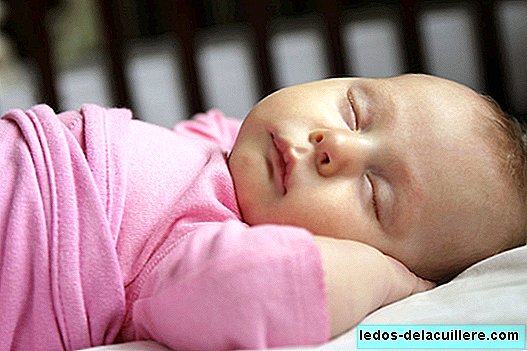
These vital signs monitors have not been approved by the US Food and Drug Administration (FDA)., and there is no evidence that the devices prevent any potentially fatal problems in normal babies, Bonafide said.
He is not the only pediatrician who does not recommend them. The American Pediatric Association especially recommends that do not use high-tech monitors for babies who are in good health.
According to the AAP, there is no scientific evidence that the use of monitors reduces the incidence of sudden death.In his latest recommendations to reduce the risk of sudden death published in 2016, in section 13, he states:
"Do not use home cardiorespiratory monitors as a strategy to reduce the risk of SIDS.
The use of cardiorespiratory monitors has not been documented to reduce the incidence of SIDS.
These devices are sometimes prescribed for home use to detect apnea or bradycardia and, when pulse oximetry is used, the decrease in oxyhemoglobin saturation for infants at risk of these diseases. In addition, routine cardiorespiratory monitoring before hospital discharge has not been shown to detect children at risk of SIDS.
There is no data that other commercial devices that are designed to monitor children's vital signs reduce the risk of SIDS..

False alarms
False alarms can occur if babies activate the monitor by kicking or turning around, or if they experience a harmless change in their vital signs that the device interprets as a threat to their life, Bonafide said.
For example, research has shown that babies occasionally experience sudden reductions in their oxygen level that would activate the monitor, he said. Is about normal fluctuations that will make parents believe something is wrong.
This would result in babies failing to undergo blood tests, x-rays and other procedures that are expensive and potentially harmful to them.
False sense of protection
Another concern of pediatricians is that parents put on their smart clothes and trust that their babies are protected, regardless of the safe sleep guidelines recommended by experts who have been shown to prevent deaths from SIDS, such as:
- Babies sleep in the room with parents during the first year of life
- Put the baby to sleep on his back
- Use a firm mattress
- Avoid stuffed animals, toys, protectors, cushions and blankets in the crib
- Do not wrap the baby too much while sleeping
- Do not smoke near the baby, or sleep with him if he smokes
- Breastfeed or use a pacifier


